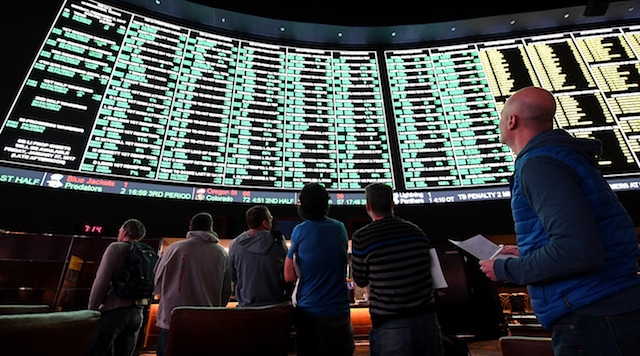Things were moving along quite nicely with Indiana’s goal to legalize and regulate sports betting until last week. Mobile wagering a the state as it has found an opponent in a very high place in House Public Policy Committee Chairman Ben Smaltz. Rep. Smaltz insisted on the online wagering issue being fully removed from the bill, S 552 , before allowing it to pass through his committee last week. The mobile betting issue has been a problem in many other states looking to establish their sports betting industry, and it is usually due to constitutional concerns or the definition of “mobility.” In Indiana, Smaltz has taken a much more vague stance.
“I think having it available everywhere within the four walls of the state is a problem, and I think consumer protections are a problem,” Smaltz said. “I don’t know why we wouldn’t have all casino games allowed to be played on a device if we are going to allow sports wagering on that device.”
Black Market, What Black Market?
The entire crux of the legal sports betting industry movement is based on the fact that the black market for sports betting exists. It is an industry worth billions, and it offers zero consumer protection. Many people understand this. Smaltz is not one of them. Many of the stakeholders on his committee held a week before the vote made the argument that mobile wagering is essential for the regulated market to takeover the current black market. Smaltz doesn’t see the connection somehow claiming that a black market would have other advantages that would keep people from fully embracing the legal market.
“Someone could start an account on a mobile device and then sell it to anyone. If I have a cloned phone account set up to the game, it can circumvent age requirements. I think there are many problems with mobile gaming that should not be summarily dismissed.”
Maybe this seems like a weak example, but he raises a good point. There are unintended consequences to mobile betting. However, other states have tackled this issue and many like it. Smaltz wasn’t done though and really buried his head in the sand a moment later.
“Just the definition of a black market means that there isn’t any real data showing its size,” Smaltz said. “How do you know? We don’t know if it’s a big problem or a little problem. Trying to solve it by creating mobile sports wagering seems dubious to me.” Of course, there are dozens of studies he could find with an simple Google search that clearly show the sports gambling black market to be huge. Some estimates have it over $50 billion a year in the U.S. alone. All of this is rather odd as sports betting will still move forward in the state. Only without mobile betting.
No Official League Data
A big improvement to the bill by the committee was to remove the requirement to use “official league data” for “live betting” or “in-game wagering.” This was a point of contention during the hearing which included both stakeholders and league representatives.
“We don’t normally require single sourcing for any good service information,” Smaltz said. “If you can only get it from one source, how do you responsibly charge for that? It seems like that’s unreasonable and nobody is doing it.”
Other Changes
In addition to sports betting, the bill passed by the Senate includes the movement off the water of two riverboat casinos in Gary. The bill actually added a $100 million fee for Spectacle Entertainment as they look to move their casino off the riverfront to a new property located within Gary. To help their move along, the bill also removed its “hold harmless” provisions and tax improvements. Other casinos in the state are wary of any casino movement and how it could disrupt the entire state industry. This is obviously reflected in the $100 million fee. Smaltz, of course, had a slightly different take.“That’s the value of it,” Smaltz said of the move. “The current location isn’t nice. The owners will tell you that. The permits they have now paid for that specific location. Where they want to move, we can see a value increase of casino operations anywhere between $300 and $700 million.”
Next Steps for Indiana/Smaltz
The bill is currently in the Ways and Means Committee, from where it needs to advance to the House floor by April 9. “Prior to us amending the bill, I don’t think it would have passed committee,” Smaltz said. “After amending, it had a unanimous vote. That bodes well for it.” And this isn’t the end of mobile sports wagering per se as it is what the majority of Indiana wants. However, Smaltz still promises a fight. “I’ll certainly keep talking about it,” Smaltz said. “There’s people who want to be on the other side. It will be an active issue.”
